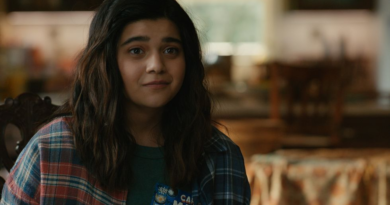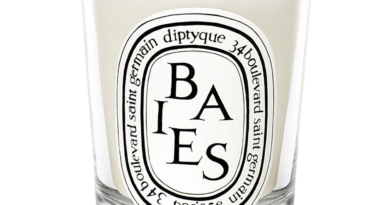Standing Ground Is the Emerging Label Cutting Through the Noise
Style Points is a weekly column about how fashion intersects with the wider world.
It was a comet that first fired Michael Stewart’s imagination. He grew up in Ireland, in a house tucked into a hill. Above it loomed an ancient ringfort, or fortified settlement built into the earth. (He calls them “timestamps in the land.”)
“I used to stargaze a lot,” Stewart remembers. When the Hale-Bopp comet shot across the sky in 1997, “I have distinct memories of [seeing it] and my mom telling me the last time it was here, or visible, was about four and a half thousand years ago.” The idea of coming into contact with something only the ancients had seen fascinated the young Stewart. “If you strip it away and you just look up at the stars, you think, ‘Okay, I can almost imagine what this land was back then if I squint right,’” he says. “I love that idea of mentally transporting yourself to a different time.”
When Stewart became a design student, enrolling at London’s Royal College of Art, he drew on that fascination with the timelessness of his childhood landscape. Unlike his Irish cohorts Simone Rocha or Roísin Pierce, his work doesn’t touch on traditional craft motifs from the Emerald Isle. “I don’t engage with modern Ireland, or even relatively modern Ireland,” he says. “My interest is the land, the first people who came to Ireland, and the traces that they left behind.” He likes imagining the ancients through “a science fiction lens,” collapsing time frames so that the futuristic and primordial converge. “I wouldn’t say my work is super futuristic, and I wouldn’t say it’s super ancient,” he says, “but you can almost imagine it in either space.”
Stewart has shown collections for his brand, Standing Ground, for the past two seasons as part of Fashion East—the London Fashion Week group show that counts Grace Wales Bonner, Craig Green, and Jonathan Anderson as alums. “It’s a real stamp of approval on people’s work,” he says. But despite showing in the capital, Stewart doesn’t really identify with the punk-New Romantic-maximalist aesthetic salad that has come to define London style. He’s more apt to make references to the classic silhouettes of Geoffrey Beene and Charles James than to more recent fare. It’s most important to him “to have a purity in the work and to focus on fit and cut. There’s a reality to my work, because I drape on the stand and fit on the body.”
Stewart goes against the grain in another way: he doesn’t use mood boards or sketch. He sees his process as more akin to sculpting with fabric. It might also be compared to improvisation. “I have a vision in mind,” he explains, “but I allow the fabric to tell me what it wants to do, and I’m playful with it.”
For spring 2023, he showed brightly-colored column gowns that dripped with ease and featured tube-shaped structures snaking over the body-like vines. Fall brought gently molded hips and a stripped-down take on midcentury silhouettes. Some dresses were corseted, but not in an obvious, costumey way. Stewart was aiming for “this soft, marshmallowy, modern take on a bustier dress…I don’t want to see the boning of the corset poking through or leaving an impression on the fabric.”
“A lot of people don’t even know that they’re corsets underneath,” he adds. “They think they’re much simpler than they are. I quite like that. It’s nice to be able to achieve a really pure look, but with all of those intricate workings internally.”
Stewart’s unfussy approach to eveningwear has been a hit with celebrities: Naomie Harris, Imaan Hammam, and Jourdan Dunn have all worn his designs on the red carpet, and our June/July cover star Karol G sports his bodysuit and sweeping hot-pink skirt in her shoot.
Fashion has found a minimalist equilibrium lately. And while Stewart is averse to trends, there’s no denying that his work falls within that rubric. Personally, Stewart believes the return of spare silhouettes came about “because people are jaded from looking at noise. I know I certainly am. I find the social media thing quite difficult, to be constantly bombarded with so much information. People do crave purity; it’s almost like a stillness, a break for your eyes.” But getting a pared-back design right can be more challenging, he thinks. “It can be less impressive, if not done correctly.” And its appeal is quieter: “If you look at a jersey dress on a hanger, it doesn’t have much presence, but when you put it on a body, it’s a really different story.”
Stewart isn’t just taking the road less traveled when it comes to design, but with his business as well. Thus far, he’s eschewed selling to wholesale accounts in favor of a small, almost Luddite made-to-measure operation where he works directly with private clients. For him, it’s a way of slowing down a system that can feel like it’s careening out of control. So many young designers, he says, “get chewed up and spat out, and six seasons later they’re never to be seen again…I just want to take a bit of power from that a little bit.”

ELLE Fashion Features Director
Véronique Hyland is ELLE’s Fashion Features Director and the author of the book Dress Code, which was selected as one of The New Yorker’s Best Books of the Year. Her writing has previously appeared in The New York Times Magazine, The New Yorker, W, New York magazine, Harper’s Bazaar, and Condé Nast Traveler.










